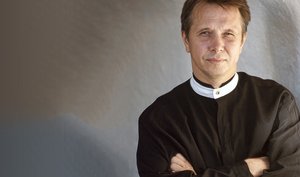MOZART Piano Sonata No. 4 in E-flat major, K. 282
BEETHOVEN Piano Sonata No. 31 in A-flat major, Op. 110
– intermission –
MOZART Piano Sonata No. 10 in С major, K.330
BEETHOVEN Piano Sonata No. 32 in С minor, Op. 111
Mikhail Pletnev piano

A Budapest audience was privileged to hear the globetrotting pianist phenomenon Mikhail Pletnev for the first time in 1987. “Pletnev knows everything about the piano and its tonality. [...] He discovers joy in his instrument and even more so in the composition being performed. This exhilaration, however, is not a private matter, he shares every moment of it with his audience.” This glowing tribute was written after the debut at the Liszt Academy of the pianist, victorious winner of the 1978 Moscow Tchaikovsky Competition, and there will be no less exhilaration in store for concertgoers of this solo concert featuring a pair of sonatas by Mozart and by Beethoven. The fact is that although in the intervening decades Pletnev has won international acclaim both as founder of an orchestra and conductor, the 62-year-old master’s piano playing remains to this day of unquestionable authority among contemporary greats of the instrument.
The Russian artist has positioned the two Mozart sonatas dating from 1774 and 1783 in the company of a brace of Beethoven’s late sonatas. The concert programme concludes with the two-movement sonata in C minor (1822), which receives a memorable role in the pages of Doctor Faustus by Thomas Mann. In the novel, the author has the musician Wendell Kretzschmar articulate a profound insight into the work, which is verified in life by this concert of Mikhail Pletnev: the second movement (Arietta) is Beethoven’s final farewell to the sonata as a genre and as a traditional form.
